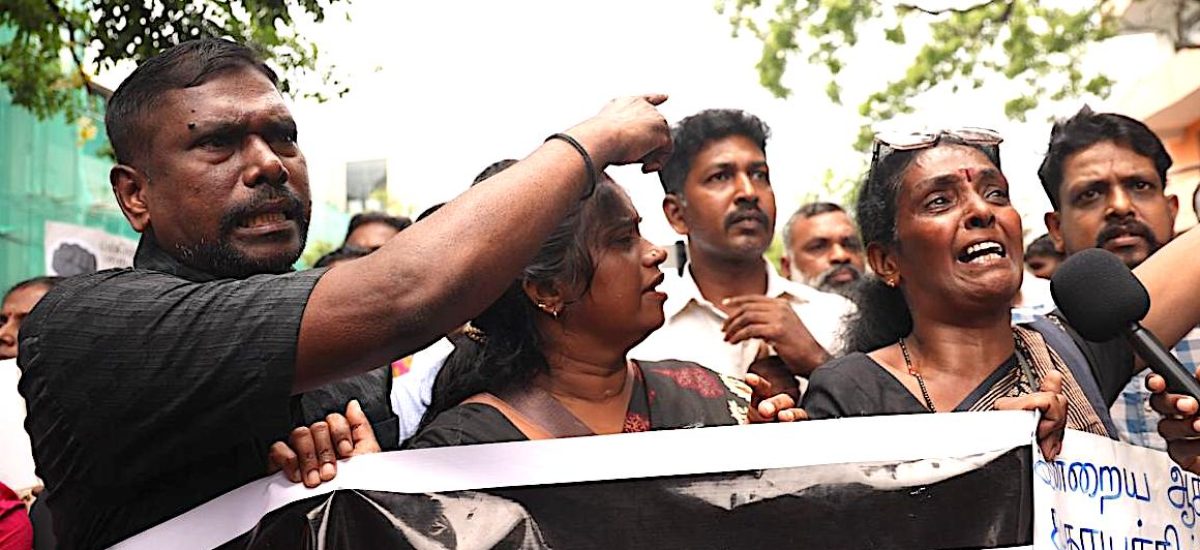Photo by Noopura Liyanage
The tragic loss of a young girl called Amshi in recent weeks has caused a great deal of grief and anger in the community.
But will this lead to changes in law enforcement and community awareness regarding the need to support rather than shame the victims of sexual abuse and predatory behaviour?
Sri Lanka as a country tends to shame victims of sexual violence. Sexuality is a taboo subject and traditional norms and customs surrounding sexual behaviour are seen today by many as suppressive; most children and young adults grow up ignorant of their rights and responsibilities in this realm of human behaviour.
Unfortunately, this culturally enforced silence and stigma results in victims of sexual abuse being shamed and harassed for being the vulnerable targets of the unwanted behaviour of perpetrators. The media are often responsible for further victimising these individuals; faces and names of the victims are blasted all over the news sites, inviting speculation and commentary of the most prurient kind and the perpetrators are not named and their pictures are not shown to protect their rights to privacy.
In this case, the child has apparently left a note before ending her life, clearly identifying the perpetrators by name and had also confided in her parents, which shows her personal courage. Her parents had filed complaints against the teacher who had harmed the girl and had taken the child to another school to protect her from further harm. Unfortunately, another teacher at a private tutoring college she attended had then allegedly compounded the problem by publicly shaming the girl, thus encouraging the other students to isolate and exclude her.
This ongoing shaming in addition to the initial harassment and abuse inflicted by the teacher at her former school created an intolerable situation for this young girl. Humiliation is a terrible experience for anyone, but especially for the young, whose ability to relate to and socialise with their peer group is vital to their sense of belonging and self worth.
We can see multiple instances in this case of negligence and breaches of duty of care which were owed to the child by the teachers involved. The teachers at any school are supposedly hired not only for their educational qualifications but for their ability to properly fulfil their responsibilities of supporting and demonstrating fiduciary care to the minor children in their charge.
Obviously, a teacher who sexually abuses a child in their care and the school or institution that does not investigate or take action when complaints are made are not fulfilling their primary duty to the child. Many perpetrators would prefer to have their actions undisclosed so their professional records are not affected despite the harm their actions have caused. Many institutions are also more concerned about their reputation in the community than in enforcing the proper processes of accountability in such a difficult situation.
Mental health professionals are needed as counsellors in school and educational settings and government committees and policy advisory groups more than ever before. Only people ignorant of human behaviour and the way an individual’s mental health is directly affected by their environment can try to redirect blame to a victim’s mental frailty. Victim blaming is as damaging as victim shaming. Education is needed throughout the community to deconstruct the monumental ignorance, which causes such harmful impact.
The problem is that there is strong stigma attached to speaking up about issues that the community finds shameful. The shame should shift sides from the victims to the perpetrators. Only then will justice be possible. There is no redress possible to a family that has lost its child but the community as a whole too will lose confidence not only in specific people or institutions but in the system in which such actions seem to go unaddressed. It is our collective responsibility, our fiduciary duty, to raise our standards and codes of conduct at every stage of the process of accountability in situations such as this.
We as a nation have just completed joyful new year celebrations and a Vesak holiday. Every newspaper and news site and TV station carried coverage of the colourful lights and festivities. Family and the importance of family was emphasised, as Sri Lankans from every community place their families at the centre of their lives and their reasons for living.
I suggest that as citizens we need to personally increase our sense of duty of care as a community, to all the children enrolled at every school in the country. They should be supported, not shamed, when they have the courage and self worth to speak out about wrongful behaviour that has been directed at them.
Parents, teachers, tuition teachers, administrative staff, police officers, counsellors, peers and fellow students, family members and community leaders can all lift our voices and speak out against injustice like this. Instead of shaming and blaming after the fact, we could save and uplift the lives of the children who – we regularly say – represent our future as a country. We should not leave it to activists to protest. Our own actions should create greater justice for our children and most vulnerable citizens.
We need to not only present a good picture. We need to create a safer society in which the dignity of all individuals is upheld.

